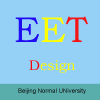-
Elaboration as a learning tool
普通类 -
- 支持
- 批判
- 提问
- 解释
- 补充
- 删除
-
-
Elaboration as a learning tool
STUDENTS LEARN BETTER when they make use of elaboration. Cognitive theorists say this is because elaboration helps learners form more meaningful associations between the new knowledge being acquired and their prior knowledge.
Elaboration is the deliberate act of expanding on an idea to process it more thoroughly. This type of elaboration is a generative learning strategy you can use as a learner, teacher, or an instructional designer to make lessons more memorable.-
Research
Since Wittrock's 1974 study on Generative Strategies, many studies have compared the effectiveness of supplying learners with instructional devices versus allowing learners to generate their own. Generally, the studies have found that learners perform better on comprehension and recall tests when they generate associations for themselves, rather than having them supplied.
To enhance transfer Clark and Voogle (1985) suggested encouraging learners to develop:- Examples and applications
- Analogies between new learning and prior knowledge
- Paraphrases of declarative knowledge.
-
Some Practical Applications
Elaboration can be used in at least six of Gagne's Nine Events of Instruction. Here are some suggestions:
Gain Attention: Instead of telling learners how a given topic is relevant, ask them how the topic is relevant to them. To answer they'll have to focus their attention on the topic and thereby generate elaborations.
Stimulate Recall: After informing your learners of the instructional purpose, ask them to describe a similar situation they've encountered in the past. This too requires elaboration, as does any activity that asks learners to describe, summarize or list.
Present Materials: Try presenting learners with examples and ask them to formulate a concept or principle the examples have in common. Instructors can, of course, assist with guiding hints or questions.An old concept could be compared to a new one. Learners then list similarities and differences between the two.
Provide Learning Guidance: Using elaboration allows learners to take charge of their own learning. Instructors, or instructional materials, may suggest that learners create mental images, create graphic organizers, or invent mnemonics.
Eliciting Performance (Practice): Encourage learners to role-play, elaborate examples, generalize, summarize, list or describe. Comparisons and critiques also elicit elaborations. Error correction is an effective form of practice, provided the learner explains why the corrections are needed. Completing a chart, map or graph, also calls elaboration into play.
Enhancing Retention and Transfer: Ask learners to describe how they'll use their new knowledge in real-life situations or future learning endeavors. Envisioning the future calls for elaboration. It also re-establishes relevance and re-motivates the learner. Developing "rules of thumb" regarding the new knowledge likewise calls for elaboration (Smith & Ragan, 1999).-
Author
Tom Heffernan
-
-
- 标签:
- examples
- learners
- ask
- instructional
- topic
- elaboration
- learning
- tool
- knowledge
-
加入的知识群:



学习元评论 (0条)
聪明如你,不妨在这 发表你的看法与心得 ~